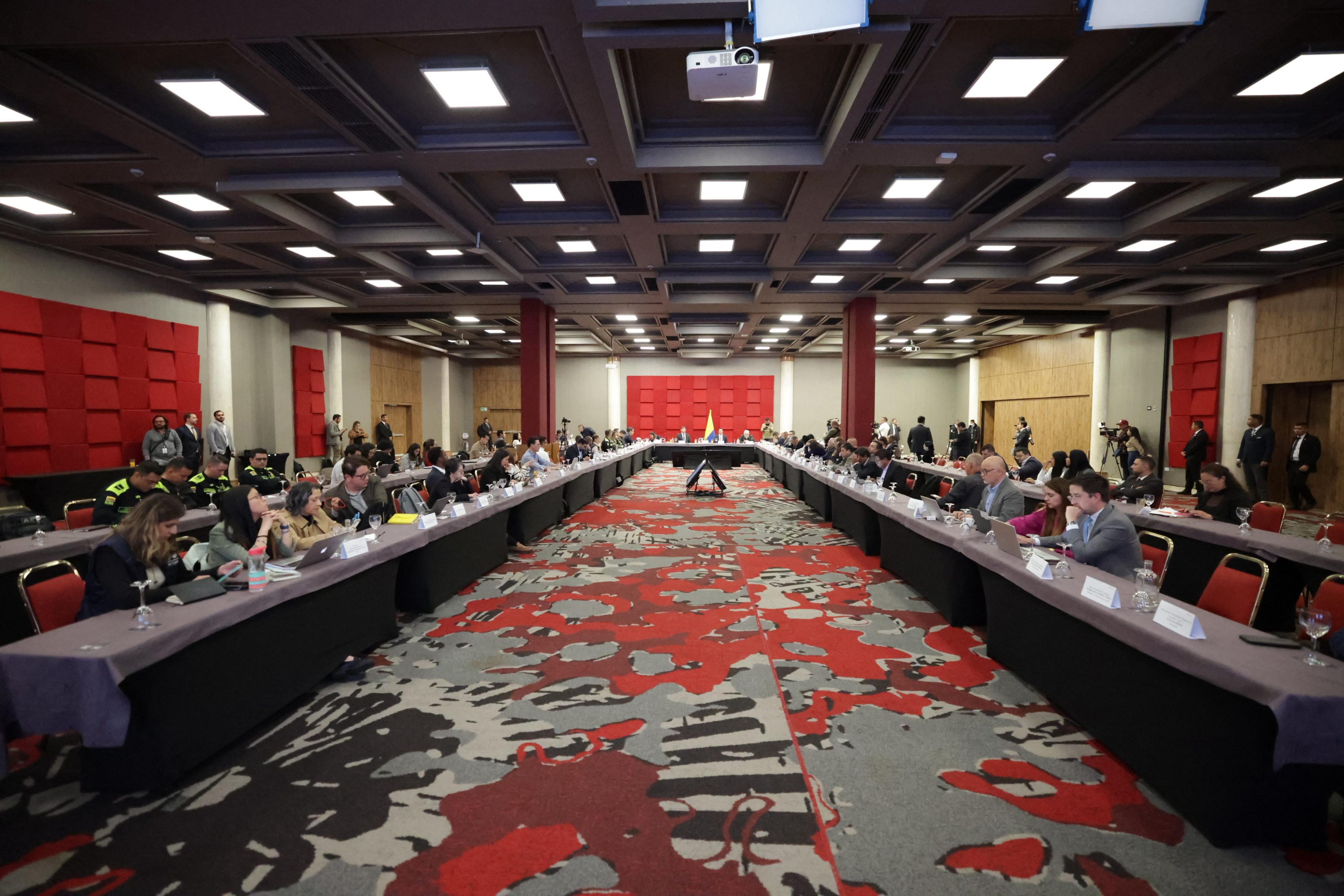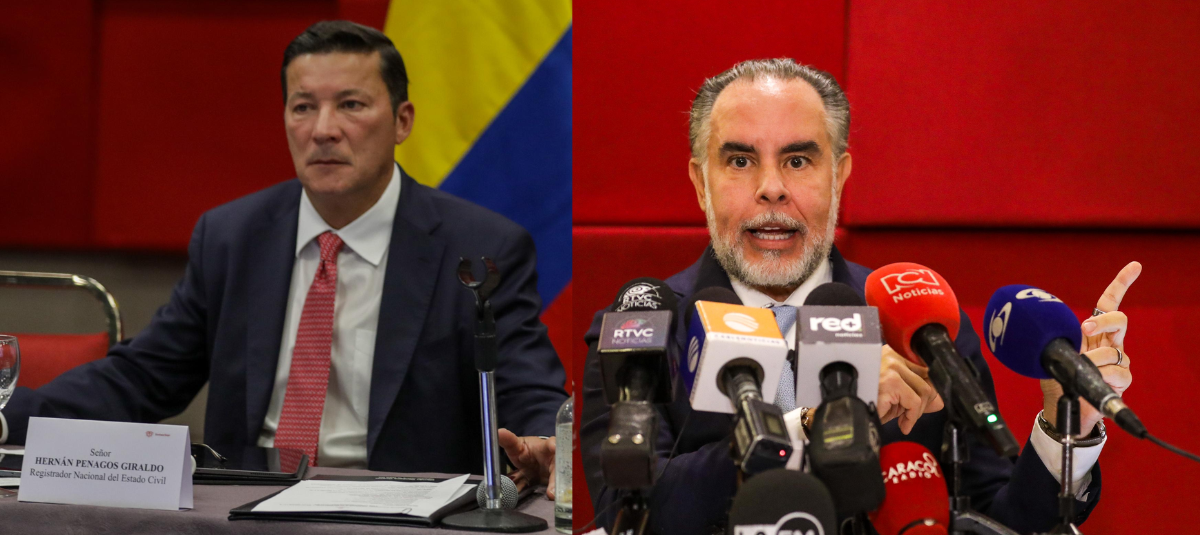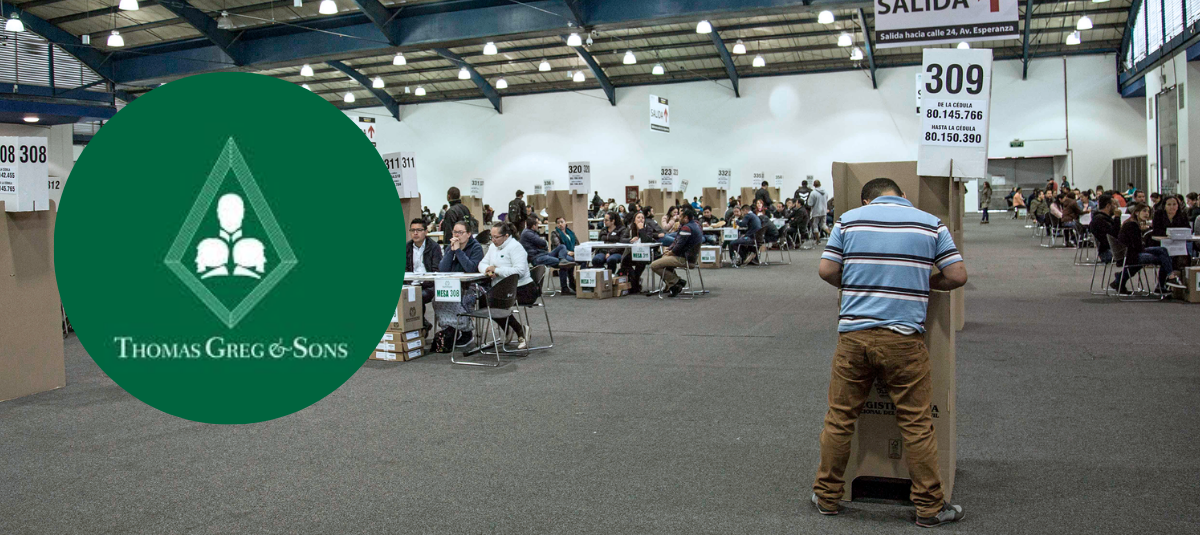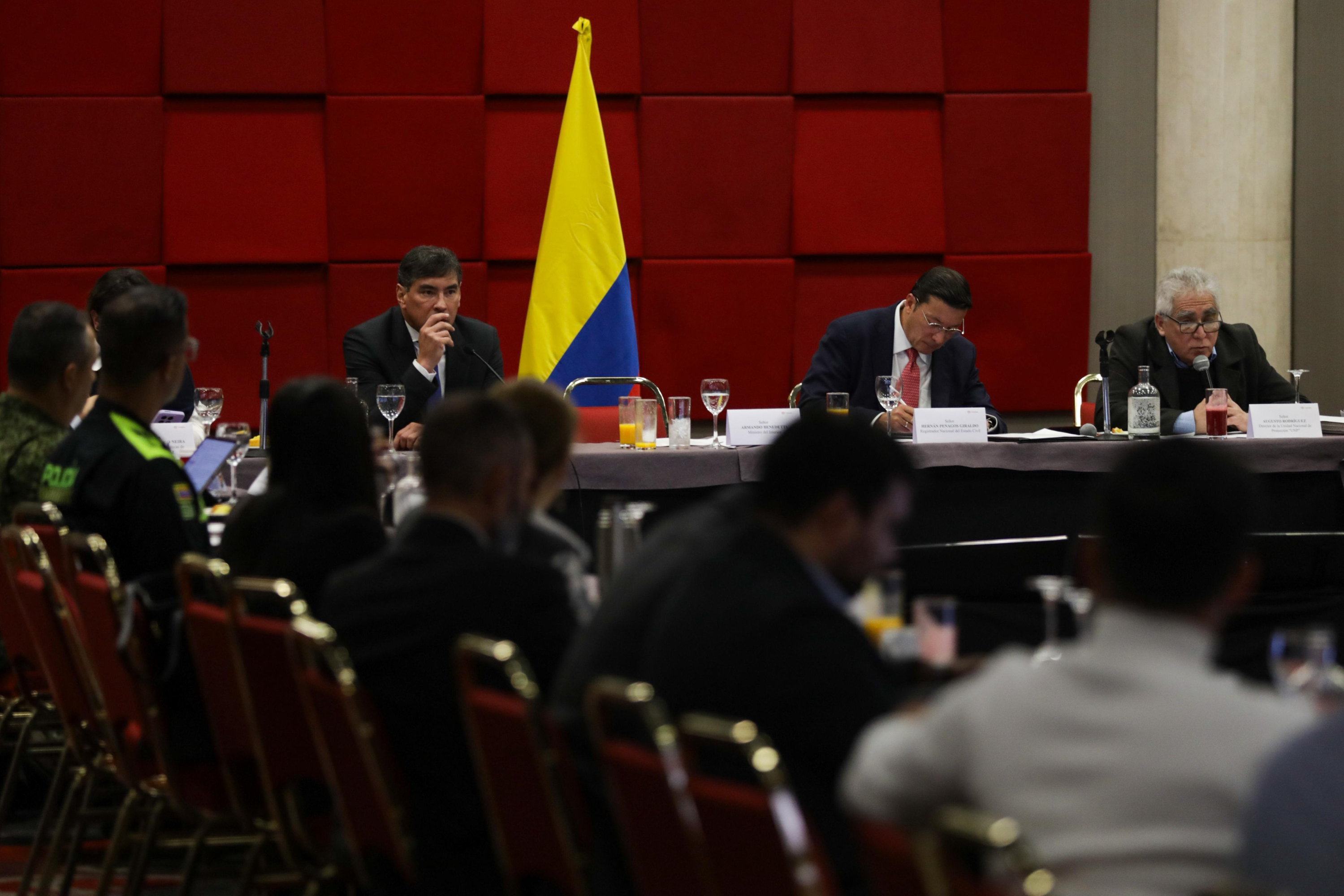'It was executed with better timing; the Registry has been very careful': MOE on election logistics contract

After President Gustavo Petro questioned the transparency of the 2026 elections, the Electoral Observation Mission (EOM) positively assessed the 2.1 billion peso contract awarded by the Registry Office to Thomas Greg & Sons for election logistics . The EOM emphasized that, unlike previous processes, this time the contract was contracted earlier and had the support of oversight bodies such as the Attorney General's Office, as well as the participation of technical panels with electoral observers.
This was stated by Diego Rubiano, coordinator of the MOE's Political Observatory, in an interview with EL TIEMPO during the fourth session of the Electoral Monitoring Commission. The meeting was convened by the Ministry of the Interior and was attended by political parties—although 13 decided not to attend due to statements by the head of state—as well as the National Registry, the National Protection Unit (UNP), the Public Force, and the National Electoral Council (CNE).

Electoral Guarantees Commission. Photo: César Melgarejo, EL TIEMPO
"We're talking about a process that was nearly two months ahead of schedule in terms of contracting, which didn't happen in 2022, and this represents an important window of opportunity in terms of contract execution. It was executed with improved and longer deadlines (...). The Registry has been very careful with this tender and has also invited regulatory agencies to participate (...) and these are important elements," he said.
One of the most sensitive points in this debate has been President Petro's assertion that Thomas Greg would be in charge of the vote count. In response, Rubiano emphasized that the Temporary Union, to which the multinational is a member, will provide technological support (platforms and digitalization) once the contract is signed, but the actual counting process will be carried out by independent officials .
"The scrutiny process is carried out by judges and notaries of the Republic. In this case, the temporary union is responsible for providing the technological solutions used to load this information," he explained.

Registrar Hernán Penagos and Interior Minister Armando Benedetti. Photo: César Melgarejo, EL TIEMPO
Finally, the EOM noted that concerns for the elections center on the deteriorating security situation and the increase in the actions of illegal groups. "We recorded 134 acts of violence against leaders between January 1 and May 8," Rubiano said. He added that they have issued alerts regarding the registration of ID cards, which, although improved compared to 2021, presents potential irregularities in 52 municipalities.
What Penagos said During this session of the Electoral Monitoring Commission, held at the Tequendama Hotel, Interior Minister Armando Benedetti reiterated that the Casa de Nariño has concerns about full compliance with a ruling by the Council of State ordering the Registry to implement "structural corrections" for the electoral system. "Among these corrections is that the counting software be state-owned. More than five years have passed, and the entities mentioned therein have partially failed to comply with these rulings," Benedetti asserted.

The Registry's Office awarded the election contract to Thomas Greg's temporary union. Photo: Registry's Office
It's worth mentioning that in 2014, the Council of State found software inconsistencies that impacted the MIRA results. These flaws were evident in 1,412 tables, with system changes at various levels: 2,492 records and 1,130 tables at the departmental level; 959 records and 341 tables at the municipal level; and 179 records and 75 tables at the zonal level.
Following this incident, the high court ruled that the State should own the voting software to ensure both the security and complete traceability of transactions made on the platform.
In this regard, the national registrar, Hernán Penagos, confirmed that the software was indeed purchased, but not from Thomas Greg & Sons, as the President of the Republic claims. "In the last elections, the counting software was managed by the National Electoral Council (CNE), for both the congressional and presidential elections. It should be noted that the software was purchased from the Spanish company Indra and will again be made available to the CNE," the official stated.

In the background are the president of the National Electoral Council (CNE), the National Registrar, and the director of the National University of Puerto Rico (UNP). Photo: César Melgarejo, EL TIEMPO
Penagos also announced that for the upcoming elections, access to the source code of the vote-counting software will be permitted, in order to guarantee the transparency of these elections and public trust. He also said that external audits will be contracted to monitor all stages of the electoral process, and a cybersecurity tool will be acquired to protect the integrity of the system and reduce cyber risks.
Camilo Castillo and Juan Pablo Penagos
eltiempo





